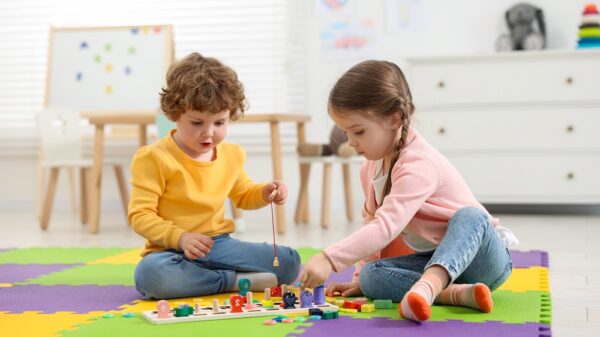Education has undoubtedly undergone a significant transformation over the past five years, a change that resonates with nearly everyone involved—students, parents, and teachers. The upheaval brought on by 2020, particularly the shift to remote learning, has left us all grappling with a sense of disconnect. For students, the loss of daily social interactions and the enriching environment a physical classroom provides has had ripple effects that many are still feeling today.
As we reflect on the years following the pandemic, the stark reality is evident: student test scores have plummeted compared to pre-pandemic levels. This decline is alarming, but it’s also a wake-up call for all stakeholders in education. Teachers have voiced a collective understanding that, while a quick fix to reverse this trend may be elusive, parents hold a crucial role in fostering better outcomes for their children.
A recent survey conducted by Study.com, encompassing the insights of 700 elementary and middle school educators, shines a light on this issue. The survey revealed that nearly half of the teachers, approximately 46%, attribute students’ academic struggles to a “lack of family prioritization of academics.” This isn’t merely an observation; it speaks to the essential support system that parents provide in their children’s educational journeys.
Steven Barnett, an authority in early childhood education and the founder of the National Institute for Early Education Research, voiced his disappointment regarding these findings, particularly in the realm of literacy. He pointed out that his organization’s data indicates a concerning 12% drop in the number of parents reading to their children at least three times a week since the pandemic began. “Engagement with literacy is critical,” Barnett explains. He worries that as new cohorts of students progress through the system with similar conditions, we may see further declines unless we implement effective solutions quickly.
On a brighter note, the survey findings also suggest a path forward. An impressive 87% of teachers believe that enhanced support for families would significantly impact students’ academic performance. This is where the emphasis shifts towards collaboration. Dana Bryson, the Senior Vice President of social impact at Study.com, encapsulates the sentiment perfectly. “It’s not that parents are apathetic,” she asserts. “Rather, we need to do a better job of ensuring that all parents, regardless of their circumstances, have the opportunity and resources to be involved.”
So, what can parents do in today’s demanding landscape, where balancing work, children’s extracurricular activities, and maintaining a semblance of personal well-being feels nearly impossible? While the answers remain uncertain, one thing is clear: involvement is crucial. That said, we must acknowledge a certain truth—the delicate balancing act required to assist with homework can sometimes lead to frustration. Studies have even suggested that not all parental involvement yields positive results. In some cases, parents’ attempts to assist with subjects like math may inadvertently hinder their children’s understanding.
To remedy this, some educational institutions are taking steps to engage families more effectively. For example, a school district in Illinois is testing a new initiative that provides parents with weekly summaries of their children’s grades and behavior. This proactive approach could motivate parents to take a more active role in their children’s education. However, this brings to the forefront the question of teachers’ workloads. With education professionals already stretched thin, does adding more responsibilities to their plates help or hinder their ability to teach effectively?
Finally, the challenges facing education are anticipated to broaden with potential cuts to the U.S. Department of Education looming on the horizon. With this uncertainty, it’s paramount for students, educators, and parents alike to band together, fostering a robust support system to navigate the turbulent waters ahead. Through collaboration, resilience, and community effort, there is hope that we can turn the tide for our students and ensure a brighter future.
Image Source: Iryna Inshyna / Shutterstock



































